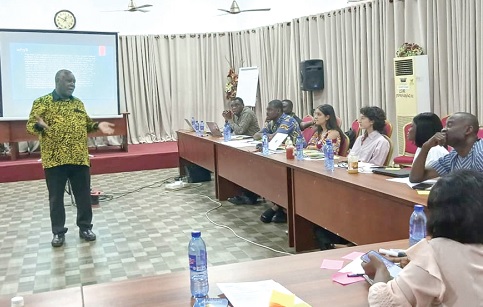A dialogue on agroecology and climate smart agriculture has been held to examine how the two concepts are applied within Ghana’s agricultural landscape and what they mean for the future of food systems.
The meeting, held at CSIR–STEPRI, sought to deepen stakeholder understanding of both approaches and encourage reflection on the values that should underpin agricultural policy in climate change.
A Researcher, Dr Chaka Uzondu, underscored that while agroecology and climate smart agriculture are often presented as similar, they were grounded in distinct perspectives.
"Agroecology emphasises ecological balance, food sovereignty and farmer knowledge, whereas climate smart agriculture tends to privilege productivity, technology-driven interventions and market systems,” he explained.
He further explained that clarity about those distinctions was vital for shaping policies that truly serve the interests of Ghanaian farmers.
Discussions
Discussions at the forum touched on a wide range of issues, including land accessibility, sustainable financing for smallholders, youth engagement in agriculture, the role of technology and the environmental consequences of agrochemical use.
Participants reflected on how private sector investment, research institutions and government policy could reinforce or undermine sustainability goals.
The gathering brought together representatives from the Ministry of Food and Agriculture, CSIR, the Peasant Farmers Association of Ghana, other civil society groups, development partners, among others.
Sustainability
The Deputy Executive Director of the Centre for Indigenous Knowledge and Organisational Development (CIKOD), Wilberforce Laate, also stressed the importance of rooting agriculture in sustainability and indigenous knowledge.
“We cannot continue to depend excessively on chemical inputs. Our policies must guarantee land access, support soil fertility management and encourage environmentally friendly practices.
“Agroecology offers real resilience to rural communities that are most exposed to climate variability," he said.

